Live-action adaptations of your favorite anime series are sometimes painful to watch. On rare occasions, they’re actually pretty decent, even though stories with supernatural or sci-fi elements tend to be especially difficult to reproduce faithfully in real life…or so we thought until now. Before now, many people have commented that a live-action version of the insanely popular Attack on Titan (進撃の巨人) would be impossible to execute well. But a group of enthusiastic German fans have proven everyone wrong with their amazing video which runs like a movie trailer! This production has truly raised the bar for fans around the world. One more important detail: they have real horses!
Japan (Page 1513)
Daikon radishes have been really stepping up their game lately and upping the cuteness to a solid 11. First, we saw these adorable mounds of grated daikon capybaras swimming in soup. Now, a little old lady has grown a daikon that bears a striking resemblance to a Pokemon character. More on where the little guy was found and how it came to be after the break!
International hacking group “Anonymous” has stated that it breached and shut down the official Wakayama Prefecture website earlier today as a taste of what may come should local fishermen continue to hunt dolphins. The prefecture is home to Taiji, the coastal town that shot to infamy in 2010 following an exposé in the film The Cove, which documented the mass slaughter of thousands of dolphins that takes place in the area each year.
Mothers and fathers of the world, have you ever had a washing machine accident where your laundry ended up, well, incredibly lumpy? That lumpiness might have been caused from accidentally putting in a disposable diaper, which has superabsorbent polymers that can be great for soaking up wet messes from your kids, but can be a real pain in the wash. Recently, a Japanese twitter user put out a very handy lifehack for parents out there. Click below to find out this nifty little trick to get your laundry back to normal!
Declaring your love, or even just your like, for a boy or a girl in Japan can be a pretty big deal. While we don’t think most people’s stories are quite as dramatic as in anime, with characters struggling for seasons just to admit their fond feelings for another, it’s certainly true that many Japanese people are pretty shy about asking each other out.
While it’s kind of cute and kind of frustrating if you’re used to a more forward culture, is it really that different from other countries?
You may be aware from our past articles that Hello Kitty has a very special year ahead of her with her 40th birthday coming up on November 1. Well, it so happens that Japanese toy maker Bandai’s popular chogokin (super alloy) series of mecha and robot toys is also turning forty this year, and never one to miss an exciting business opportunity, Ms. Kitty has joined forces with Bandai to celebrate both their anniversaries the way she knows best — with a collaboration, of course! This time, she’s turned herself into robot action hero, Super Alloy Kitty, and she’s even come out with a super-cool, short animated video to promote the collaboration!
Although, Japan is still something of a smoker’s paradise compared to other developed countries, there are signs that times are a’changing with an increase in prices and no-smoking areas sprouting up across the land.
Anti-smoking groups often use dramatic stories and images to try and frighten or disgust people out of smoking tobacco. However, one simple poster hanging in a smoking section in Shinjo City, Yamagata Prefecture sends a chilling message of love to all their nicotine addicts.
Not so long ago, if you were travelling overseas and someone swiped your bag or camera, you pretty much had until you left the country to crack the caper. Unless you happened to be carrying a cargo of priceless gems in your tote bag, the local authorities weren’t going to coordinate an international search and recovery operation with you once you’re back in your home country.
Things are different now, when so many of the gadgets we take with us on vacation are linked to cloud storage services and social media accounts. Such was the case of one Japanese traveler who goes by the Twitter screen name Matsumoto Hiroki. Matsumoto, who lost his iPhone on a trip to Bangkok, was able to track down the person using it through iCloud, which is when his story got really interesting.
A calm atmosphere, free Wi-Fi, and decent coffee – what’s not to love about Starbucks (unless you’re a staunch New Englander who swears by Dunkin’)? If you walk into any branch, you will see a line of people waiting to grab their favorite caffeinated pick-me-up. You’re also likely see a bunch of people hunched over their laptops typing away furiously, either by themselves or huddled together in groups. The laptop of choice to go with their steaming mug of coffee? From what we’ve seen, it seems to be a MacBook Air.
Have you ever watched people when they’re silently working on a computer, wondered what they’re up to, and then all of a sudden a smug little grin inexplicably breaks across their face? This self-satisfied look is known as a doya-gao in Japanese. One of our Japanese reporters, who is a frequent patron of Starbucks, recently began to notice a correlation between the frequency of people using MacBook Airs in Starbucks and those wearing a doya-gao expression. Intrigued, she started taking notes, and discovered that there are three branches of Starbucks in Tokyo where the doya-gao phenomenon is particularly common…
With 35 years as Japan’s favorite mecha anime, the Gundam franchise has grown to include dozens of TV and direct-to-video animated series, manga comics, and video game adaptations. With such a long history, some of them are, of course, less successful than others. Certain fans shook their heads at V Gundam’s cast of middle schoolers. Others were baffled by G Gundam’s schoolgirl uniform-inspired robot designs. Even the TV series that started it all, 1979’s Mobile Suit Gundam, has more than its fair share of goofy villains of the week who come and go like so many Scooby Doo criminals.
But despite the franchise’s occasional detours into outright silliness, the 1988 theatrical release Char’s Counterattack enjoys almost universal acclaim, both for the gravitas of its story and the commensurate visuals. Which makes it all the more disheartening to see the robot piloted by the film’s hero apparently reduced to having to take a job at convenience store 7-Eleven.
Since you’re reading our kinda geeky site about Japanese and Asian news and pop culture, we think it’s safe to assume you agree with us that cosplay is pretty cool and fun to look at, but it’s also natural to be slightly dubious that cosplaying could ever amount to anything more than an extremely expensive hobby or very crappy contract work.
Well, it turns out we were all wrong, and we were jerks to underestimate cosplay in the first place. The more time you spend in the cosplay world, the more you end up developing talents in a range of fields, including fashion design, cosmetics, lighting engineering and even photography, as the Internet learned when a Japanese cosplayer with just four years’ experience in the hobby gave her 54-year-old mom a full cosplay makeover and photo shoot.
You’re probably well aware that the Japanese are fond of creating food and beverages in unusual flavors and splicing things together, but guess what? That trait can be found in their toothpaste as well. Here are seven odd-tasting toothpastes available in Japan that you might, or perhaps might not, want to brush your teeth with!
It’s January, which only means one thing to Japanese high school students: University entrance exams. These tests can be a source of extreme stress of Japaneses students, and many of them spend hours upon hours every day studying in class, at home, or at cram schools. Substandard test scores means they’re denied entrance–and spending the next year or two studying to take the tests again.
One of the hardest tests is the Center Test, which is used by both public and some private schools to make admittance decisions. Like the SATs or ACTs on steroids, it covers a range of topics and is, by anyone’s standards, really freaking hard. So what does the picture above have to do with the Center Test? Click below to find out!
Who doesn’t love Kit Kats? They’re tasty, available in many interesting flavors, and they’re even considered a good luck snack in Japan for students preparing for entrance exams because the name Kit Kat sounds somewhat like the phrase “You’ll win for sure! (Kitto Katsu)” in Japanese. Well, the popular chocolate snack now seems to have reached a new level of refinement and consumer appeal, as the world’s very first specialty Kit Kat shop opened this past Friday at the Seibu Department Store in Ikebukuro, Tokyo. A shop that sells Kit Kats exclusively? Now, that sounds like something to be excited about!
But that wasn’t all — to our further delight, we heard that the Kit Kat Chocolatory, as the specialty shop is called, was selling Kit Kats in original flavors created by renowned patissier Yasumasa Takagi. Well, there simply was no way we were going to miss this, so off we went to Ikebukuro to visit the shop, on opening day, no less! What else could we do, right?
Read More
Family restaurants like Saizeriya are a staple of Japan’s cheap culinary world. From fake Italian food to fake Mexican-Indian hybrids that taste far better than they really should, family restaurants are a great place to hangout for high school students, to grab a quick meal between meetings for harried salarymen, or to take hungry kids for frazzled parents. Though convenient, the chains aren’t exactly known for their high class presentation.
However, Aiya, a family restaurant focused on Japanese-style cooking, has come up with a way to offer their customers a bit more pizazz!
While the meme above is probably nothing new to you, it took its time reaching Japanese Internet audiences. But now that it has shown up on this side of the ocean, we’ve learned something a bit surprising about Japanese rock fans.
Which instrument do you think was the most liked according to a recent online survey? We’ll give you a hint: Without it, the Red Hot Chili Peppers wouldn’t be nearly as much fun to listen to!
When it comes to language learning, one of the biggest problems is staying motivated. Memorizing 100 kanji for a test next Friday might get you through the work, but memorizing 100 kanji so you can read your favorite comics or talk online with fellow comic-fans will really light a fire under your keister. And we all tend to learn better when we’re having fun! We think someone proved that with science and stuff. It might have been Mr. Sato…he’s been playing with the chemistry set again.
Anyway, we know a lot of our readers are both Japanese-language learners and manga/anime fans. If you fit that description and you’re always looking for something to help keep you motivated to study, why not add these sites to your daily reading list? It might be difficult to get through everything at first, but if you keep with it, you’ll be reading like a champ in no time! Just don’t ignore your real homework! We don’t want any angry Japanese teachers knocking on our doors…
Readers of our site may be aware that a fair number of our articles involve collaborative items featuring cute mascot characters, including the lovable rabbit, My Melody. Well, here’s another gem of a character product that we think will make many of you squeal with delight!
Now, while My Melody may not be involved in as nearly as many business ventures as fellow Sanrio character and cat-of-all-trades, Hello Kitty, you have to admit she’s done quite well for herself since her creation in 1975. This time, especially for Valentine’s Day, she’s turned herself into something that’s sweet and melts in your mouth — and it’s not ice cream!
What could be cuter than a fluffy, rolly-polly panda? A panda full of gooey strawberry-milk flavored cream of course. That’s just what Ginza Cozy Corner is cooking up at their L’Ueno shop this month.





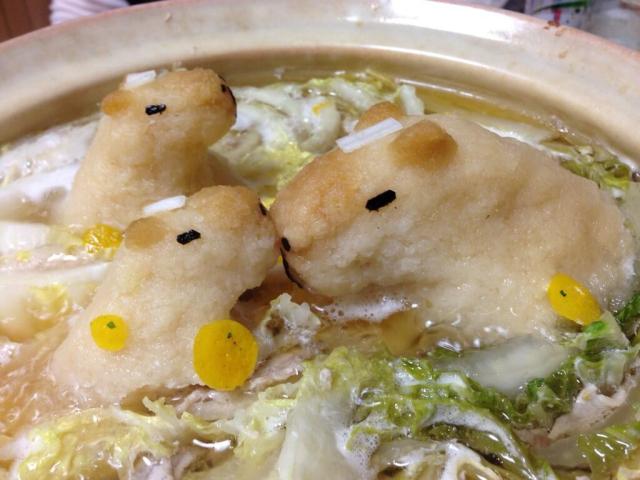
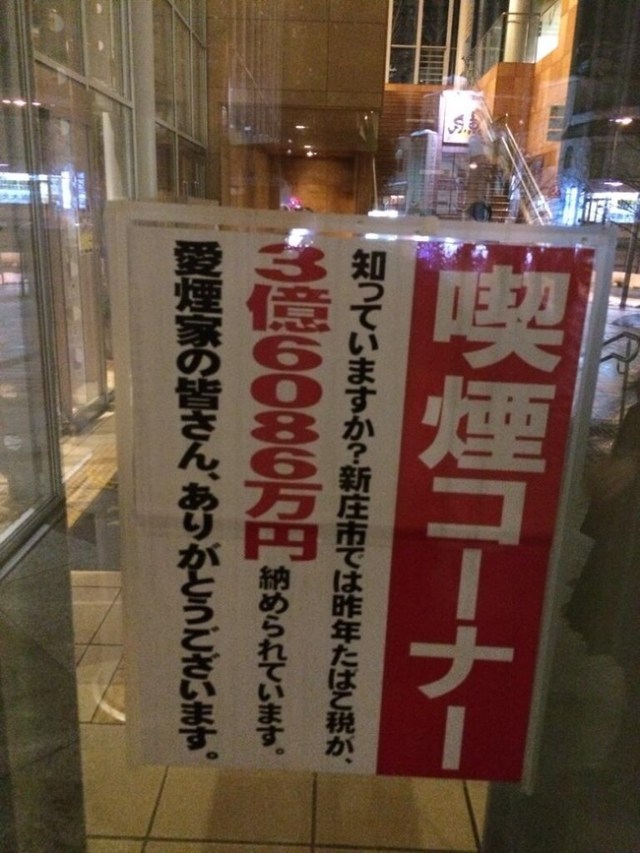



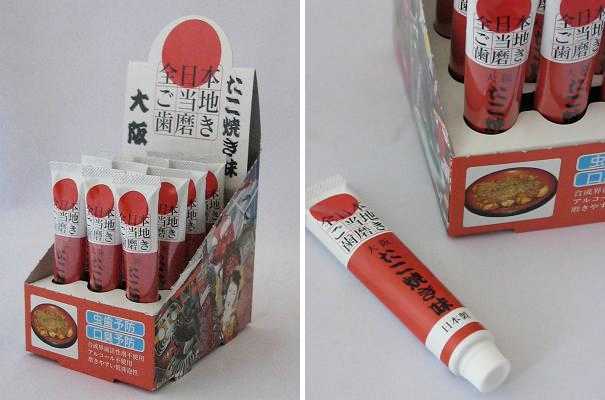
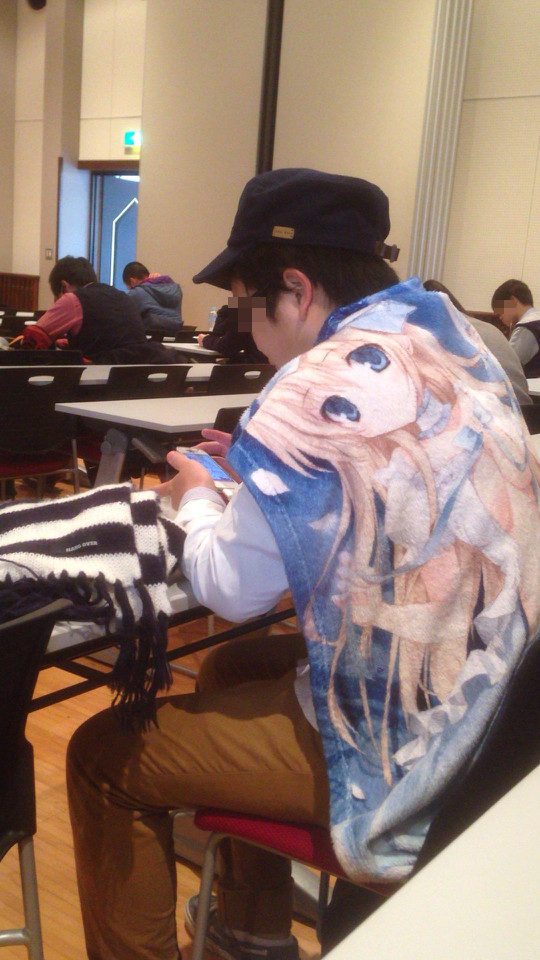
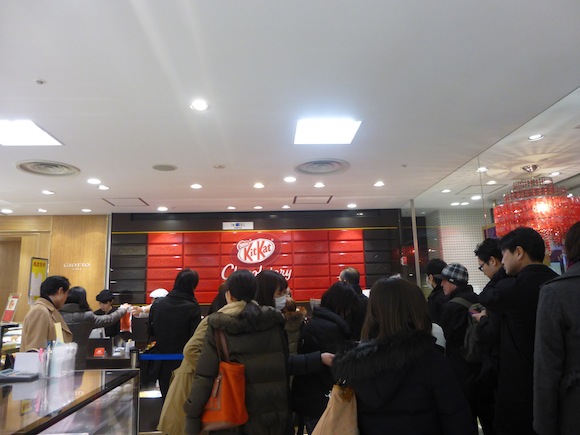
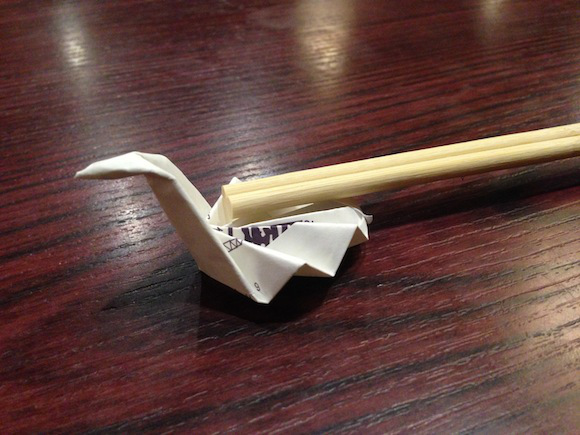


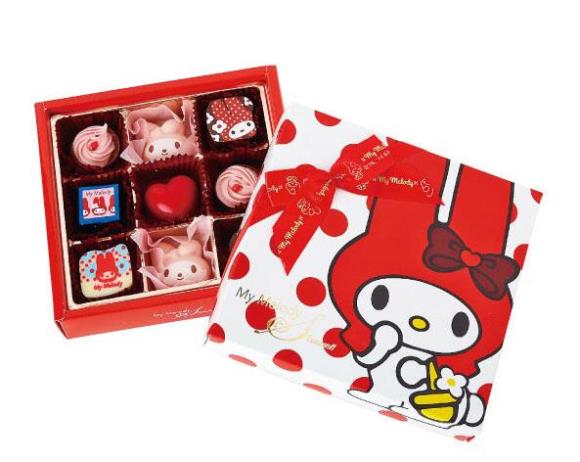

 Starbucks Japan releases new drinkware and goods for Valentine’s Day
Starbucks Japan releases new drinkware and goods for Valentine’s Day Majority of Japanese women in survey regret marrying their husband, but that’s only half the story
Majority of Japanese women in survey regret marrying their husband, but that’s only half the story Japan’s kid-friendly ski program is now selling Pikachu snowboards for a limited time only
Japan’s kid-friendly ski program is now selling Pikachu snowboards for a limited time only Japanese vending machine serves up unique drinks at four Tokyo train stations
Japanese vending machine serves up unique drinks at four Tokyo train stations The Yellow Lucky Bag from Village Vanguard is so bad it may damage Japan-US relations
The Yellow Lucky Bag from Village Vanguard is so bad it may damage Japan-US relations Visiting Japan’s Gyarados Pokémon park in the city with a special connection to Magikarp【Photos】
Visiting Japan’s Gyarados Pokémon park in the city with a special connection to Magikarp【Photos】 Massive manga collaboration bringing 100 years of Shueisha manga to Uniqlo T-shirts【Photos】
Massive manga collaboration bringing 100 years of Shueisha manga to Uniqlo T-shirts【Photos】 Totoro cream puffs and Catbus cookies are finally available in downtown Tokyo
Totoro cream puffs and Catbus cookies are finally available in downtown Tokyo Japan’s otoshidama tradition of giving kids money at New Year’s gets a social welfare upgrade
Japan’s otoshidama tradition of giving kids money at New Year’s gets a social welfare upgrade Studio Ghibli holiday wreath adds a touch of Kiki cuteness and good fortune to your home【Photos】
Studio Ghibli holiday wreath adds a touch of Kiki cuteness and good fortune to your home【Photos】 Starbucks Japan releases new Frappuccino and latte for Valentine’s Day
Starbucks Japan releases new Frappuccino and latte for Valentine’s Day Our 52-year-old pole dancing reporter shares his tips for achieving your New Year’s exercise goal
Our 52-year-old pole dancing reporter shares his tips for achieving your New Year’s exercise goal Giant hotel rooms in Osaka reflect the new non-niche face of travel in Japan.
Giant hotel rooms in Osaka reflect the new non-niche face of travel in Japan. Japanese women showing rebounding interest in giving Valentine’s Day chocolate【Survey】
Japanese women showing rebounding interest in giving Valentine’s Day chocolate【Survey】 Ramen restaurant’s English menu prices are nearly double its Japanese ones, denies discriminating
Ramen restaurant’s English menu prices are nearly double its Japanese ones, denies discriminating 10 times to avoid traveling in Japan in 2026
10 times to avoid traveling in Japan in 2026 Starbucks Japan ready to get Year of the Horse started with adorable drinkware and plushies【Pics】
Starbucks Japan ready to get Year of the Horse started with adorable drinkware and plushies【Pics】 7-Eleven Japan starts new temporary luggage storage service in over 300 branches
7-Eleven Japan starts new temporary luggage storage service in over 300 branches Disillusionment at Tsukiji’s tourist-target prices led us to a great ramen restaurant in Tokyo
Disillusionment at Tsukiji’s tourist-target prices led us to a great ramen restaurant in Tokyo Starbucks teams up with 166-year-old Kyoto doll maker for Year of the Horse decorations【Photos】
Starbucks teams up with 166-year-old Kyoto doll maker for Year of the Horse decorations【Photos】 Japan may add Japanese language proficiency, lifestyle classes to permanent foreign resident requirements
Japan may add Japanese language proficiency, lifestyle classes to permanent foreign resident requirements Survey asks foreign tourists what bothered them in Japan, more than half gave same answer
Survey asks foreign tourists what bothered them in Japan, more than half gave same answer Japan’s human washing machines will go on sale to general public, demos to be held in Tokyo
Japan’s human washing machines will go on sale to general public, demos to be held in Tokyo We deeply regret going into this tunnel on our walk in the mountains of Japan
We deeply regret going into this tunnel on our walk in the mountains of Japan Studio Ghibli releases Kodama forest spirits from Princess Mononoke to light up your home
Studio Ghibli releases Kodama forest spirits from Princess Mononoke to light up your home Major Japanese hotel chain says reservations via overseas booking sites may not be valid
Major Japanese hotel chain says reservations via overseas booking sites may not be valid Put sesame oil in your coffee? Japanese maker says it’s the best way to start your day【Taste test】
Put sesame oil in your coffee? Japanese maker says it’s the best way to start your day【Taste test】 No more using real katana for tourism activities, Japan’s National Police Agency says
No more using real katana for tourism activities, Japan’s National Police Agency says Starbucks Japan reveals new sakura drinkware collection, inspired by evening cherry blossoms
Starbucks Japan reveals new sakura drinkware collection, inspired by evening cherry blossoms Updated cherry blossom forecast shows extra-long sakura season for Japan this year
Updated cherry blossom forecast shows extra-long sakura season for Japan this year Visiting Japan’s Gyarados Pokémon park in the city with a special connection to Magikarp【Photos】
Visiting Japan’s Gyarados Pokémon park in the city with a special connection to Magikarp【Photos】 Massive manga collaboration bringing 100 years of Shueisha manga to Uniqlo T-shirts【Photos】
Massive manga collaboration bringing 100 years of Shueisha manga to Uniqlo T-shirts【Photos】 Totoro cream puffs and Catbus cookies are finally available in downtown Tokyo
Totoro cream puffs and Catbus cookies are finally available in downtown Tokyo Japan’s otoshidama tradition of giving kids money at New Year’s gets a social welfare upgrade
Japan’s otoshidama tradition of giving kids money at New Year’s gets a social welfare upgrade Studio Ghibli holiday wreath adds a touch of Kiki cuteness and good fortune to your home【Photos】
Studio Ghibli holiday wreath adds a touch of Kiki cuteness and good fortune to your home【Photos】 Mister Donut and Godiva continue their sweet sweets relationship with new treats on sale now in Japan
Mister Donut and Godiva continue their sweet sweets relationship with new treats on sale now in Japan Eating Japanese katsudon once served in police interrogation rooms
Eating Japanese katsudon once served in police interrogation rooms Sega has been using a different logo in Japan and overseas for years, and hardly anyone noticed
Sega has been using a different logo in Japan and overseas for years, and hardly anyone noticed We try an unusual buffet of dishes made from wild game at a roadside stop in Chiba
We try an unusual buffet of dishes made from wild game at a roadside stop in Chiba Is the all-you-can-eat KFC buffet in Tokyo really as good as they say it is?
Is the all-you-can-eat KFC buffet in Tokyo really as good as they say it is? Giant hotel rooms in Osaka reflect the new non-niche face of travel in Japan.
Giant hotel rooms in Osaka reflect the new non-niche face of travel in Japan. Private booths are coming to Japan’s Shinkansen bullet trains even sooner than we’d thought【Video】
Private booths are coming to Japan’s Shinkansen bullet trains even sooner than we’d thought【Video】